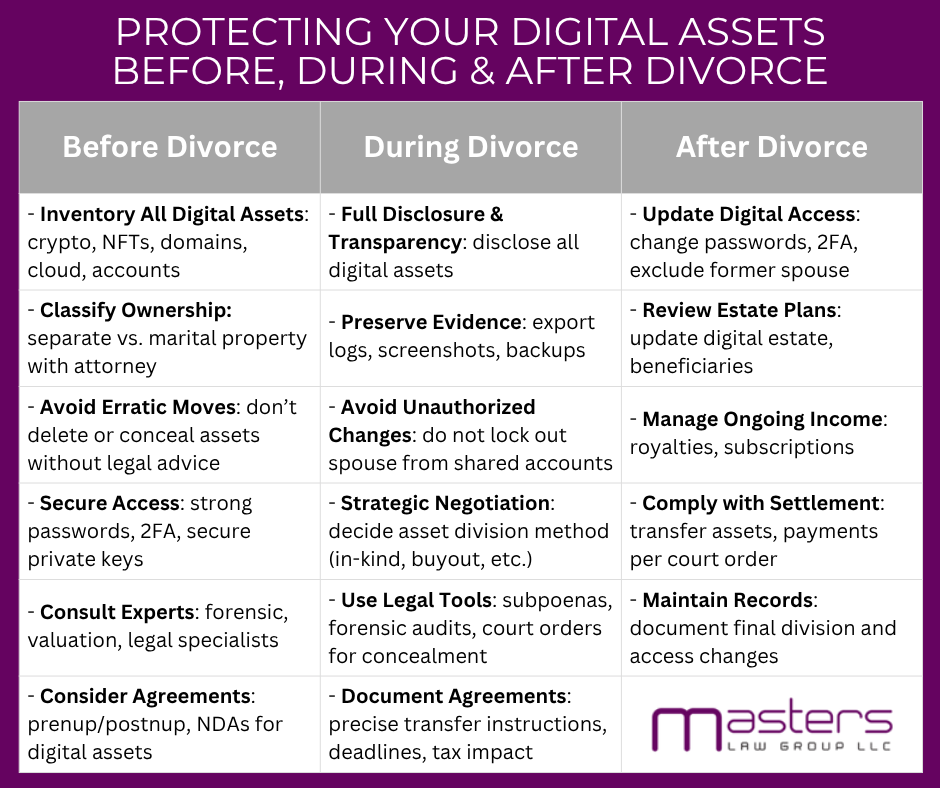Traveling Abroad with Children After Divorce: Legal Considerations
Traveling abroad with children after divorce can be a wonderful opportunity to create lasting memories, visit family, or explore new cultures. However, it also comes with unique legal responsibilities.
International travel with a child requires careful planning to ensure compliance with parenting plans, immigration laws, and international treaties such as the Hague Convention on International Child Abduction. Missteps can lead to legal disputes or allegations of parental abduction.
This guide outlines key legal considerations, practical steps for travel, and how Masters Law Group can help families navigate international travel safely and legally.
Understanding Your Parenting Plan
The first step before planning any international travel is to thoroughly review your parenting plan. Divorce and parenting plans vary, and understanding the legal framework is essential.
Key Points to Review:
- Travel Restrictions: Some agreements specifically restrict international travel or require the other parent’s written permission.
- Notification Requirements: Many agreements require advance notice to the other parent before traveling abroad.
- Sole vs. Joint Custody: Parents with sole legal custody usually have more freedom to travel, while joint legal custody often requires consent.
- Visitation Considerations: Ensure your planned travel does not interfere with the other parent’s scheduled parenting time or holidays.
Failing to follow your parenting plan can result in legal disputes, fines, or restrictions on future travel.
Obtaining Consent from the Other Parent
Even if your parenting plan permits travel, obtaining written consent from the other parent is often recommended, and sometimes required.
What Should Consent Include?
- Child’s full name and date of birth
- Travel dates and destination(s)
- Accompanying parent or guardian’s details
- Emergency contact information for both parents
- Statement granting permission for the trip
Tip: Have the consent notarized. Some countries may also require an apostille for international use.
If the other parent refuses, a court may grant travel authorization, evaluating whether the trip is in the child’s best interest and whether it interferes with parenting time.
Securing Travel Documents
Proper documentation is essential to help ensure a smooth international trip.
Important Documents:
- Passports: Both parents often need to sign a child’s passport application unless one parent has sole allocation of parental responsibility.
- Visas: Check whether your destination requires a visa for minors.
- Consent Letters and Custody Orders: Many countries require notarized letters of consent or copies of parenting plans.
Preparing all documents ahead of time minimizes the risk of travel delays or denied boarding.
International Custody Laws
Custody laws vary by country. Some nations may not recognize foreign custody orders, which can create complications if one parent contests travel or if a child remains abroad temporarily.
- Definitions of “joint custody” differ by jurisdiction.
- Some countries allow temporary custody adjustments for international travel.
- Unauthorized retention of a child abroad can be treated as abduction in some countries.
Understanding these laws is critical for helping ensure compliance and protecting your parental rights.
The Hague Convention on International Child Abduction
The Hague Convention on the Civil Aspects of International Child Abduction is an international treaty that provides a framework for the prompt return of children wrongfully removed from their habitual residence.
Key Points:
- If a child is taken abroad without consent, the other parent can request the child’s return under the Hague Convention.
- Signatory countries are required to cooperate to enforce custody decisions.
- Understanding the Convention helps parents avoid legal issues related to unauthorized international travel.
Even authorized travel can trigger concerns if documentation is incomplete, so awareness and preparation are essential.
Communication is Key
Open communication with the other parent is vital to avoid disputes.
Best Practices:
- Discuss trip details well in advance.
- Provide travel dates, destinations, accommodation information, and emergency contacts.
- Maintain transparency about the itinerary and any planned changes.
- Consider using shared calendars or travel apps to stay coordinated.
Clear communication can help foster trust and reduce the likelihood of misunderstandings.
Emergency Planning
International travel can present unexpected challenges.
Tips for Emergencies:
- Carry copies of all relevant documents, including passports, parenting plans, and consent letters.
- Have emergency contacts for both parents.
- Purchase travel insurance covering medical emergencies, trip cancellations, and unforeseen events.
- Understand local laws, emergency services, and medical facilities in the destination country.
Being prepared ensures a safer, more stress-free experience.
Potential Legal Disputes
Even with proper planning, disputes may arise:
- One parent may allege unauthorized travel.
- Disagreements about trip duration or destinations.
- Conflicts over missed visitation or special holidays.
Options include mediation, arbitration, or court intervention. Courts evaluate the child’s best interests, taking into account safety, well-being, and disruption to parenting time schedules.
Respecting the Other Parent’s Rights
Even with legal permission to travel, parents must respect the other parent’s rights.
- Follow parenting plans.
- Keep the other parent informed about travel updates.
- Ensure the child maintains contact with both parents.
Travel should enhance the child’s experience, not interfere with the other parent’s relationship.
Additional Tips for International Travel
- Destination Research: Verify country-specific travel requirements for minors.
- Health Preparation: Ensure vaccinations and travel health insurance are current.
- Digital Backup: Keep electronic copies of all travel documents.
- Legal Support Abroad: Identify local legal contacts in case of emergencies.
Proactive preparation reduces stress and prevents complications during travel.
How Masters Law Group Can Help
Navigating international travel after divorce can be complex. Masters Law Group provides guidance and legal support to make the process smooth and compliant:
- Parenting Plan Review: Identify travel restrictions or requirements in your parenting plan.
- Drafting Consent Letters: Create legally recognized documents for domestic and international travel.
- Court Representation: Petition the court for travel authorization if the other parent refuses consent.
- Hague Convention Guidance: Help understand and comply with international child abduction laws.
- Dispute Resolution: Offer mediation or litigation support for travel-related conflicts.
With Masters Law Group, parents can travel abroad confidently, knowing they are legally protected.
Final Thoughts
Traveling abroad with children after divorce can be an enriching experience, but it comes with important legal responsibilities. Reviewing parenting plans, obtaining written consent, securing proper documentation, understanding international custody laws, and adhering to the Hague Convention are all essential steps. Open communication, preparation for emergencies, and professional legal guidance can help ensure a smooth and safe trip.
Masters Law Group is dedicated to supporting families through the legal complexities of international travel. Whether you need guidance, legal representation, or assistance with consent documentation, our experienced attorneys help ensure that your family’s travel is safe, legal, and in the best interests of your children.
Frequently Asked Questions (FAQs)
- Do I need the other parent’s permission to travel abroad with my child?
Yes. Written, notarized consent is usually required, especially if allocation of parental responsibilities is shared. Airlines and border authorities may also request this documentation. - What if the other parent refuses to consent?
You may need a court order permitting travel. Courts prioritize the child’s best interests and consider whether travel interferes with parenting time. - Can a child be returned if taken abroad without consent?
Yes. The Hague Convention allows for the return of children wrongfully removed from their habitual residence in participating countries. - Are passports enough for travel?
Not always. Some countries require visas, notarized consent letters, or parenting plan documentation. Confirm requirements with embassies before traveling. - How can Masters Law Group assist with international travel?
We review parenting plans, draft consent letters, represent clients in court, provide guidance on international law, and help resolve travel-related disputes.


















